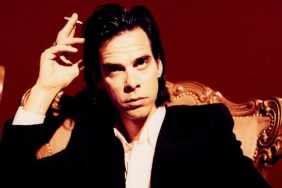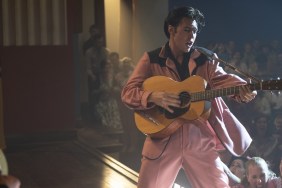BRIGHT STAR
Written and Directed by Jane Campion
Starring: Abbie Cornish, Ben Whishaw, Kerry Fox, Edie Martin, Thomas Sangster and Paul Schneider.
A Jane Campion film is an intimate affair. As the only Palme D’or winning ‘female’ filmmaker (she also won a Golden Palm for her short Peel), Campion is in many ways, the torchbearer for mainstream female directors and one of great exponents of women’s stories. Bright Star, her latest film which is gathering its fair share of Oscar buzz, explores the relationship between English Romantic poet John Keats and his lover and muse Fanny Brawne. Despite its surface similarities, Bright Star attempts to escape the trap of being a ‘women’s’ film with the results rather lopsided. The film begins strongly, rapturously holding your attention, until like Keats himself, an illness set in- with the predictable results.
Whilst a complex exploration and presentation of femininity has always been a hallmark of Jane Campion films (with the Oscar winning The Piano being the finest example), Bright Star fails to immediately resonate on this level. Whilst the central narrative follows Fanny Brawne (Abbie Cornish) as she meets, courts and ultimately falls in love with the poet Keats (Ben Whishaw), the film never feels as if it revolves around Brawn, nor does it feel like the penetrating exploration of womanhood so common in Campion’s work. This absence works both in the films favour but also as it unwinds, against it. Missing is Campion’s fearless and unique feminine critique and in its place is an almost glacial stillness, an interest in the subtlest detail.
This works to starling effect in the films first half, where Cornish excels as Brawne, brining a remarkably coy mixture, of naivety, flirtatiousness and immaturity. This is sure to be Cornish’s international breakthrough role bringing the subtle touch she showed in the multiple AFI winning Somersault. But this is not a ‘one woman show’, with Cornish’s performance equally matched by the impressive Ben Whishaw, who manages to convey both the light and darkness of such an incredibly complex character as Keats. In portraying the man responsible for such divergent work as ‘Ode To A Nightingale’ and the titular ‘Bright Star’, Whishaw’s Keats is frequently depressed, prone to outburst of jealousy and anger but also finds time to play in the garden with Fanny’s younger sister Toots (Edie Martin).
But as Keats’ health deteriorates, so does the health of the film. For all the glorious languid wide shots in the world cannot hide the fact that this film is missing its cutting edge. It’s a well made biopic, with impeccable window dressing and mature central performances but as it draws to its inevitable conclusion, you are left searching for a spark, a hidden meaning, that most Campion-esque touch that makes everything that precedes it seam laced with such deeper meaning. As Keats’ illness stakes its claim, the film gets locked in a holding pattern, waiting for the inevitable. Maybe it’s the lack of the raw sexual fission central to The Piano or In The Cut or the intellectual critique woven through Portrait of a Lady but ultimately, this is star is bright, but not dazzling, with glimpses of brilliance eventually tempered and constrained by the conventions of the biopic.
You will love this if: a) you’re a big Keats fan or b) are a sucker for a period romance.
You will hate this if: you expect more from a Jane Campion film, than one half of interest and one half of convention.
Bright Star is slatted for an Australian release on Boxing Day, 26th December 2009. Expect a wide release.












